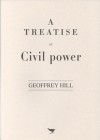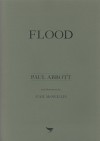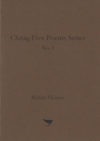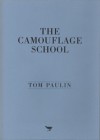Description
A major gathering of new work by one of the great poets, nowhere else published nor imminent in other forthcoming collections by Hill (January 2005, January 2006), comprising: ‘ON READING Milton and the English Revolution’ (12 x six-line stanzas); ‘To the Lord Protector Cromwell’ (x4 sonnets); ‘A Treatise of Civil Power’ (42 x eight-line stanzas); ‘Coda’ (8 x eight-line stanzas); ‘ON READING Burke on Empire, Liberty, and Reform’ (4 x seven-line stanzas); ‘ON READING Blake: Prophet Against Empire’ (45 lines in ten irregular stanzas); ‘ON READING Hazlitt: Lectures on the English Comic Writers’ (4 x six line stanzas); and ‘A Cloud in Aquila’ (6 x four line stanzas).
In his own words Geoffrey Hill has become a very different kind of poet from the one his first readers encountered almost half a century ago. At any rate, we have to acknowledge a dramatic sea-change in productivity. But plus ça change is a reliable coinage in the assaying of poetry. This is true however new-minted or made-new the voice (‘I’ll / give them lyric voice’), however dazzling the belated largesse. Here in these new poems are the familiar preoccupations with the good old cause: of language and authority; conscience and power; commerce and society (let’s add, to underline the point); history and memory; poetry and integrity; poetry and music; poetry and the ‘etymology of the gutter’; and poetry as atonement, not the least, by which Hill has always held himself and his readers to account. In the fluency or liquidity of this late work, the ‘endless wrangle / between truth and metre’ spawns ruminations of mesmerising range in which the orchestration of inspired obliquities or ‘ceaseless allusion’, shot through with dark humour, reaches such a pitch of mastery that one has to say, late or early, Hill has never written better. Watching in the wings are several writers to whom Hill nods in gratitude, not just Milton and ‘my god’ Ben Jonson, or Robert Herrick, or William Blake, as might not surprise us, but also Robert Lowell, and perhaps most interesting of all to see acknowledged John Berryman, whose Dream Songs are surely a ghostly presence here.
It would be fitting to speak of Hill’s recent return to Milton (for example, via ‘Comus’), if he had ever left him. Many will not know, and so it is worth pointing out, that the title poem of this new gathering ‘A Treatise of Civil Power’ derives from a Miltonic pamphlet of 1659 noted for a plainness of style unusual in Milton’s prose. As Milton figures here, so too does Cromwell, addressed in four sonnets whose chronological range brings us, as elsewhere in this collection, to the topical, to the Ireland of Veronica Guerin, ‘Dublin drug-heads / and Drogheda’. Those readers especially devoted to Hill’s midland kingdom, as celebrated in Mercian Hymns and revisited most recently in Orchards of Syon, will find here that same poet, who ‘had a calling for England’, his kite ‘in the myriad-snagged / crabapple crown, the cane cross-piece flailing; / a dark wind visible even deep in the hedge’ and register with delight the deployment of ‘crown’ and ‘cross-piece’ and know their weight and perhaps recall, to come round full circle, Milton’s ‘darkness visible’ in Paradise Lost.
Limited edition of 200 copies.
(Clutag Press, 2005)




